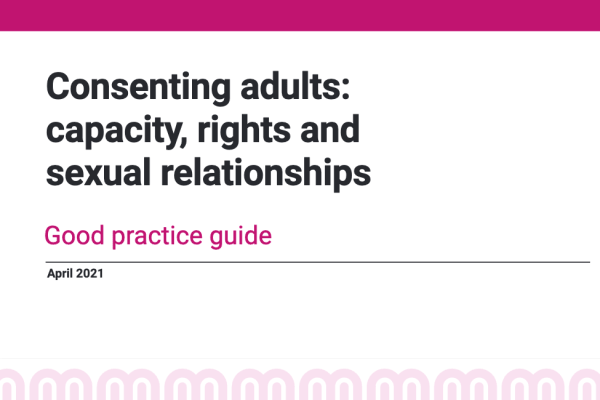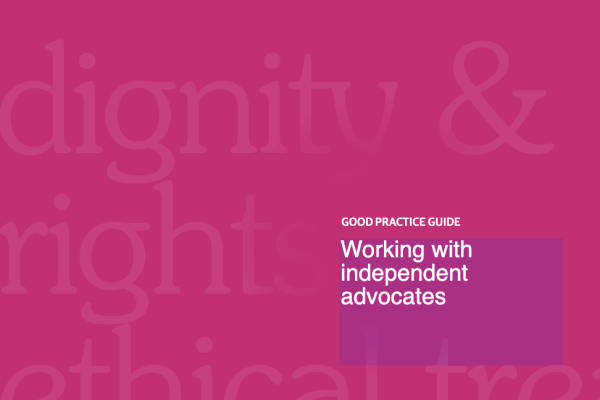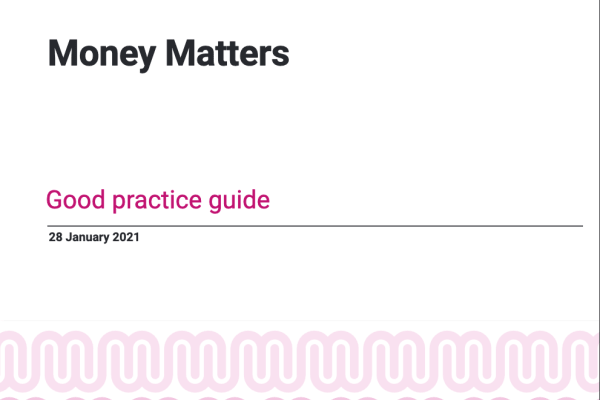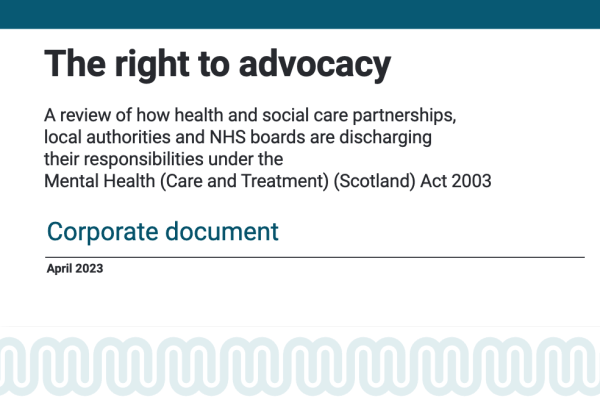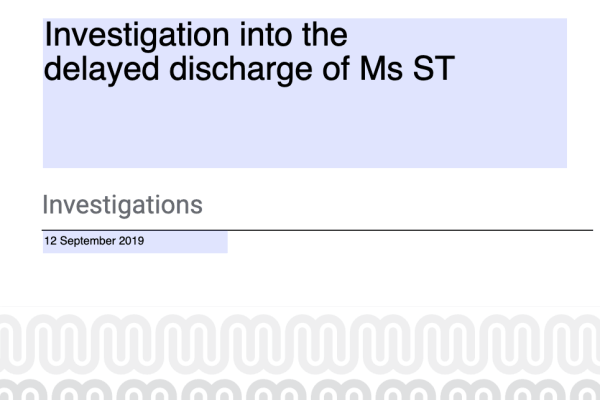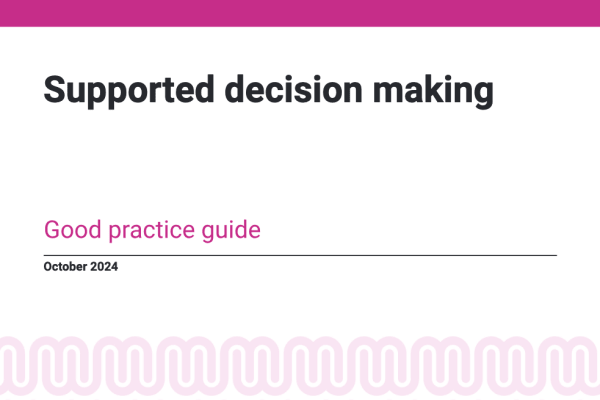Consenting adults: capacity, rights and sexual relationships
People with mental illness, dementia, learning disability or related conditions have the same human rights as anyone else to sexual expression, sexual relationships, marriage and children. These are an important part of life. But some may lack capacity or judgement to make informed decisions. They may therefore be vulnerable and at greater risk of abuse, exploitation or other serious consequences. This good practice guide supports professionals to balance rights and risks, recognising that there is always some risk, and that it is important not to be over-protective.
